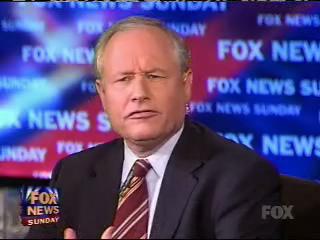
Neoconservativism existed before Bill Kristol, but before him none had figured out how to market the brand and go viral.
Some may argue that Kristol’s neoconservative policy work never actually did go viral, but they’d be wrong. His thinking animated much of Washington, and a rather small group of thinker/activists commandeered the helm of America’s foreign policy establishment and changed the course of the nation and American history.
It took quite a while for a counter-force of intellectuals and policy practitioners, spread across numerous think tanks, academic institutions, Congress, and even some inside the Bush administration to nudge the neoconservatives from their privileged spot.
My work has been focused on taking that helm away from him and his group of acolytes and making clear that neoconservative hubris and recklessness undermined this nation’s place in the world and have sabotaged its power.
Bill Kristol has written his last column in the New York Times today in which he marks “the end of the conservative era.”
I always find Kristol essays worth reading — whether they are promoting Sarah Palin populism or trying to make the case for yet another war. It’s good to know what one’s rivals are thinking.
Kristol ends his op-ed today with:
Sixty-seven years ago, a couple of months after Pearl Harbor, at the close of a long radio address on the difficult course of the struggle we had just entered upon, another liberal president, Franklin Delano Roosevelt, also told the story of Washington ordering that “The Crisis” be read aloud, and also quoted Paine. But he turned to the more famous — and more stirring — passage with which Paine begins his essay:
“These are the times that try men’s souls. The summer soldier and the sunshine patriot will, in this crisis, shrink from the service of their country; but he that stands by it now, deserves the love and thanks of man and woman. Tyranny, like hell, is not easily conquered; yet we have this consolation with us, that the harder the conflict, the more glorious the triumph.”
That exhortation was appropriate for World War II. Today, the dangers are less stark, and the conflicts less hard. Still, there will be trying times during Obama’s presidency, and liberty will need staunch defenders.
Can Obama reshape liberalism to be, as it was under F.D.R., a fighting faith, unapologetically patriotic and strong in the defense of liberty? That would be a service to our country.
It is unfortunate that Kristol sees American power and its purpose in the world in terms of militaristic metaphors, that he still thinks that American leadership needs to be measured by its messianism, by its ability to mount a “fighting faith.”
I think we need to show a bit of compassion in world affairs, to demonstrate an ability to listen, a show of humility, and need to encourage other major power stakeholders in the global system to collaboratively and cooperatively build a better order. American resources are still enormous compared on a bilateral basis with any other nation. We could be needed again if we adopt a constructive stance in the world, one that respects other powers and peoples.
America need not be shy about constructive power, but as Brent Scowcroft recently said in a forum I participated in at the Washington National Cathedral, “the nature of power is changing, and we need to understand that.” Scowcroft and his panel partners, Zbigniew Brzezinski and David Ignatius, understand that — but Bill Kristol does not.
And those other cultures, and peoples, and nations may not want to live in an American style democracy — but nor do they want to live in a throwback caliphate ruled by bin Laden or his followers. We have so many strengths in this country that could be unleashed with a different posture, and yet Kristol and his particular branch of neoconservatives seem to be satisfied only with strident chest-thumping and the deployment of force.
And while they had the wheels of the country under their control, we saw a massive collapse of American power, prestige and moral vision.
Kristol may finally be off the New York Times op-ed page, but he’ll still be in public life, and like my friend Kurt Campbell once joked, neocons never really go away.
— Steve Clemons


11 comments on “Bill Kristol’s Last Day (But He’s Not Gone)”